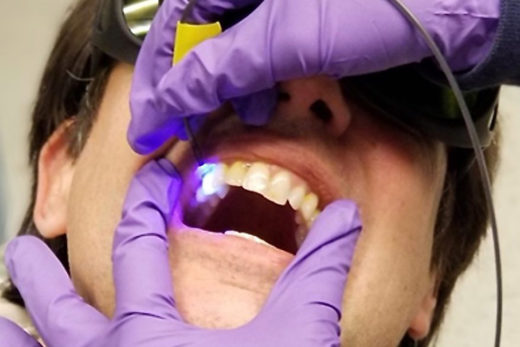Dental implants have modified modern-day dentistry. They allow human beings to update lacking enamel with an answer that appears natural, feels comfortable, and lasts for years. But here’s the seize: not every body has the identical fulfillment price with implants. One of the biggest risk elements which can stand within the way is tobacco use—whether it’s smoking cigarettes, chewing tobacco, cigars, or even vaping.
If you’re considering implants and additionally use tobacco, this article will help you understand the way it affects your oral health, why implants won’t heal properly, and what you may do to improve your probabilities of achievement.
Why Dental Implants Rely on Healing
To recognize why tobacco is the sort of problem, permit’s first examine how implants paintings.
- A dental implant is a titanium screw that receives surgically located into your jawbone.
- Over the following couple of months, your bone grows around it in a procedure called osseointegration.
- Once strong, the implant can help a crown, bridge, or denture.
This recovery phase is sensitive. The bone and gums should fuse tightly around the implant for it to last. Anything that slows recuperation or damages tissue will increase the danger of implant failure. And tobacco does precisely that.
How Tobacco Affects Dental Implants
Tobacco products harm implants in multiple approaches. It’s no longer just one hassle—it’s a series response.
1. Reduced Blood Flow
Nicotine reasons blood vessels to slim. Less blood manner much less oxygen and fewer nutrients attain the gums and bone. Healing slows down, that is essential at some point of implant integration.
2. Higher Risk of Infection
Tobacco weakens your immune machine. When bacteria collect across the implant website, your frame struggles to combat them off. This can cause peri-implantitis, an contamination that destroys bone around the implant.
3. Gum Problems
Tobacco increases the hazard of gum ailment, which causes inflammation, bleeding, and receding gums. Healthy gums are essential for implants.
4. Dry Mouth
Smoking and chewing tobacco lessen saliva float. Saliva allows wash away micro organism and shield tissues. A dry mouth is the correct surroundings for infections.
Smoking and Implant Success Rates
So, how lots of a difference does tobacco make? Research shows a clean gap:
- Non-people who smoke: Dental implants be successful approximately 95–98% of the time.
- Smokers: Success prices drop to round 80–85%.
That might also still sound respectable, but right here’s the trouble—implants that fail do so after months of recuperation, surgical procedures, and costs. And even though the implant doesn’t fail right away, smokers face better dangers of lengthy-term headaches.
Chewing Tobacco and Dental Implants
Some people assume chewing tobacco is more secure because it doesn’t involve breathing in smoke. Unfortunately, that’s now not the case. Chewing tobacco:
- Irritates gum tissue, main to recession.
- Increases oral cancer threat.
- Exposes the implant place to dangerous chemicals that damage recovery.
So whether or not it’s smoking or chewing, the dangers are actual.
What About Vaping and Dental Implants?
E-cigarettes don’t have tar, but they nevertheless comprise nicotine, which restricts blood float. Many vaping drinks additionally encompass chemical compounds that irritate gum tissue. So a long way, studies indicates that vaping can be much less negative than smoking—but it’s still a danger component for slower healing and possible implant failure.
The Critical Healing Window
If you’re a tobacco consumer considering implants, the maximum vital time to keep away from smoking or chewing is at some stage in the first 2–3 months after surgical treatment. This is while your bone is making an attempt to bond with the implant. Using tobacco on this window considerably increases the danger of failure.
Many dentists recommend preventing at least 1–2 weeks earlier than surgical operation and staying tobacco-free for 2–3 months in a while. Of route, quitting absolutely offers you the exceptional long-term consequences.
Signs of Implant Problems in Tobacco Users
If you do cross in advance with implants even as nevertheless the usage of tobacco, it’s vital to watch for caution symptoms. Some crimson flags encompass:
- Persistent swelling or redness around the implant web page
- Gums pulling away from the implant
- Pus or awful flavor close to the implant
- Loose-feeling implant or crown
- Pain that doesn’t enhance
These signs and symptoms may sign peri-implantitis or implant failure. Immediate dental care is essential if they seem.
Can Smokers Still Get Dental Implants?
The proper information is that smoking doesn’t mechanically disqualify you. Many smokers do get implants successfully, mainly in the event that they’re inclined to take precautions. Dentists normally compare:
- Bone first-rate – If bone loss is simply too extreme, you can want grafting.
- Gum fitness – Active gum ailment must be handled first.
- Commitment – Smokers who lessen or give up around the surgical procedure have better odds.
Some dentists may refuse to region implants in case you smoke heavily and refuse to reduce down, at the same time as others may work in advance but provide you with a warning approximately the extended dangers.
Why Quitting Is Worth It
Dental implants are high priced—frequently thousands of bucks in step with tooth. If smoking or chewing increases the chance of failure, that’s a large economic gamble. Beyond money, take into account the time, pain, and unhappiness of going via implant surgery best to lose it.
Quitting tobacco improves not simplest your implant achievement but additionally your general oral and preferred fitness. Benefits consist of:
- Lower risk of gum disorder and enamel loss
- Reduced risk of oral most cancers
- Fresher breath and higher flavor
- Stronger immune gadget
- Longer-lasting implants and restorations
Talking to Your Dentist About Tobacco and Implants
If you use tobacco and want implants, honesty is prime. Your dentist isn’t there to judge—they need the total picture to guide you. Be in advance about how lots you smoke or chunk. This enables your dentist:
- Create a remedy plan that money owed for your risks
- Offer resources for quitting or lowering tobacco
- Monitor your restoration greater closely after surgical procedure
Many dental workplaces additionally work with smoking cessation programs or can propose nicotine replacement remedy to help.
Final Thoughts
Tobacco and dental implants don’t mix properly. Smoking or chewing extensively raises the hazard of implant failure, slows recuperation, and increases contamination probabilities. While a few tobacco users nevertheless prevail with implants, the percentages are truly higher for non-people who smoke.
If you’re serious approximately replacing lacking enamel with implants, the smartest circulate you could make is quitting tobacco—at least for the duration of the recovery phase, but ideally for right. Doing so protects now not handiest your implant but additionally your average oral health for years to come.
Your smile is an funding. Don’t permit tobacco take it away.






